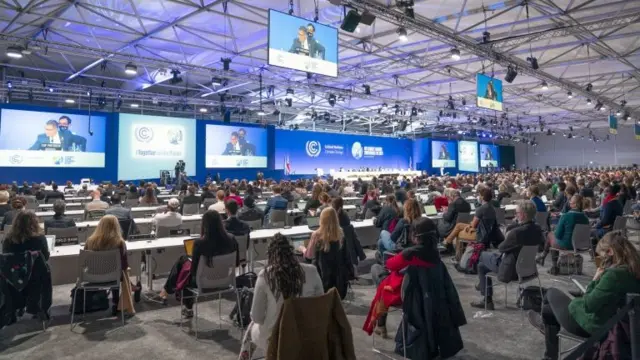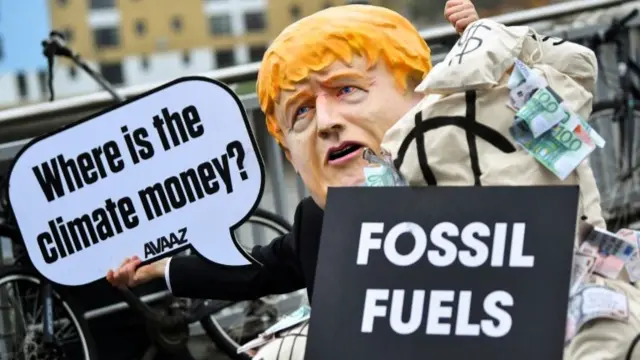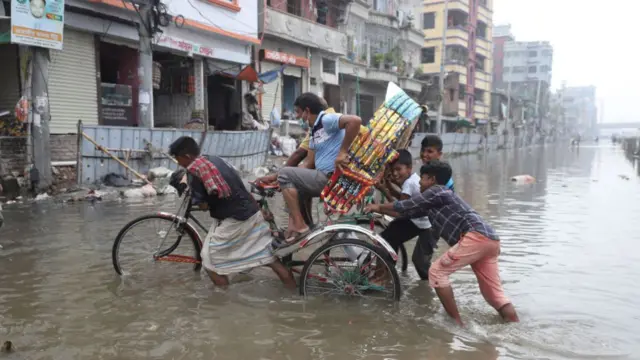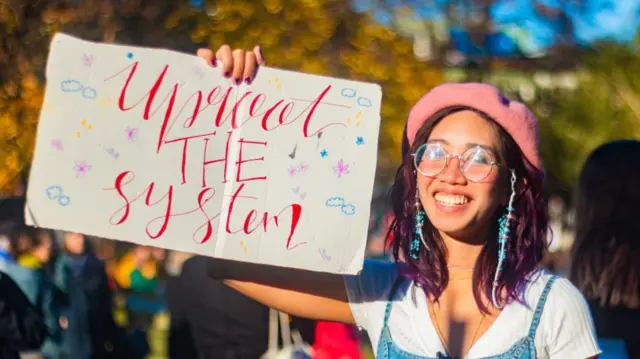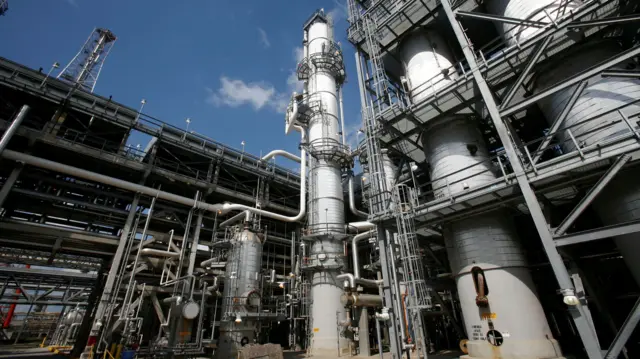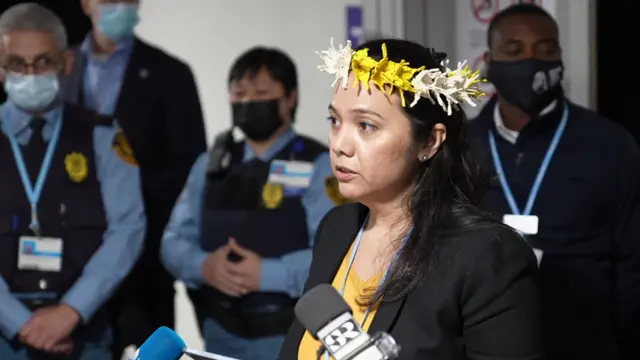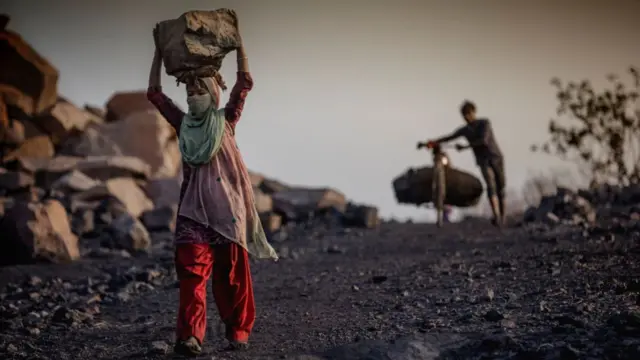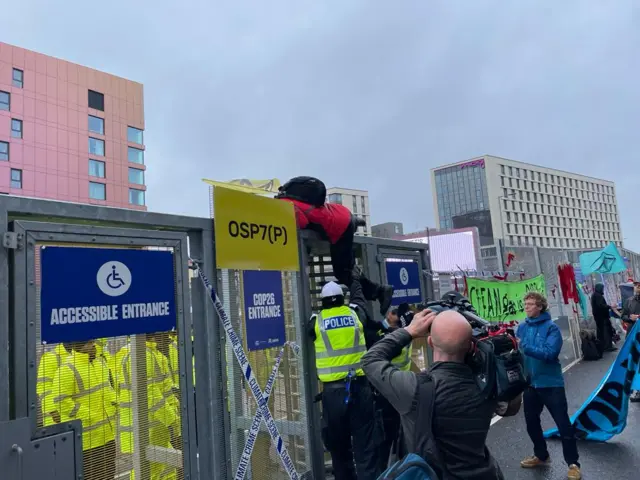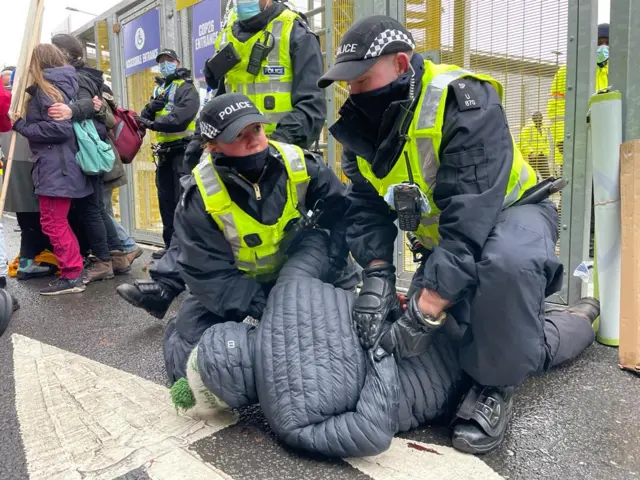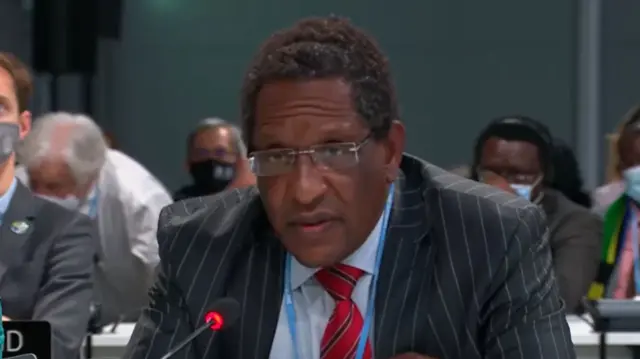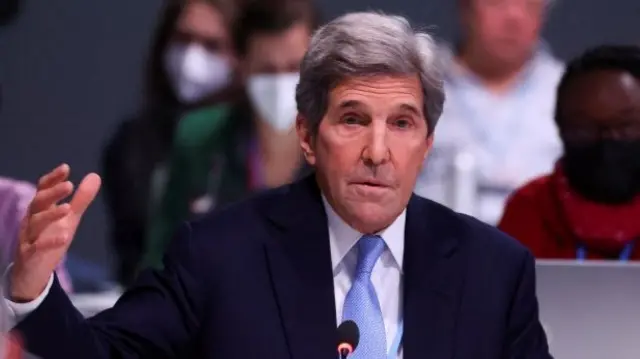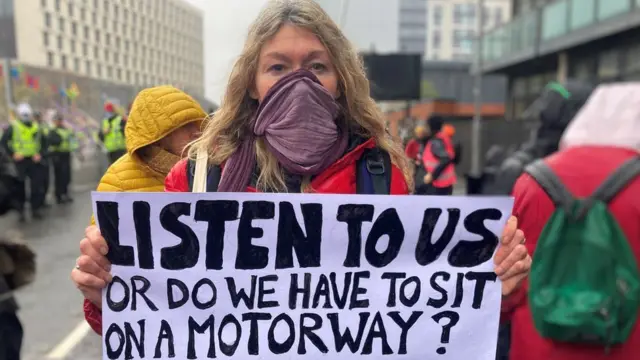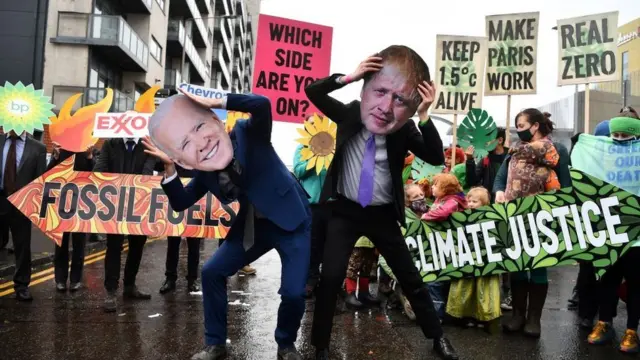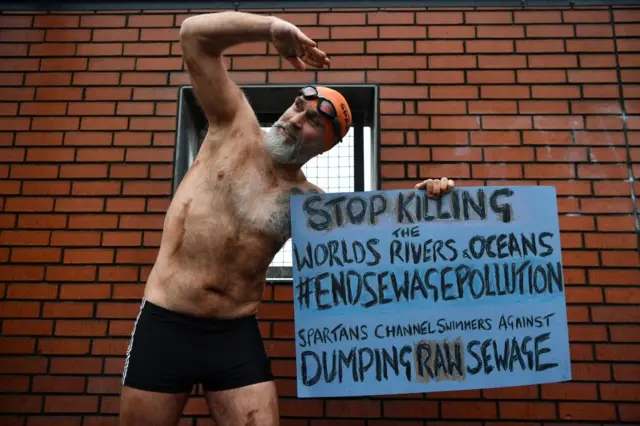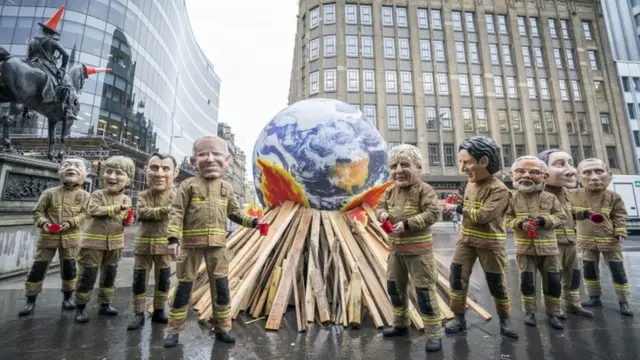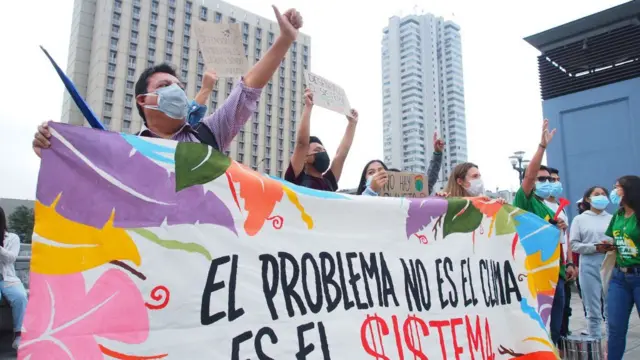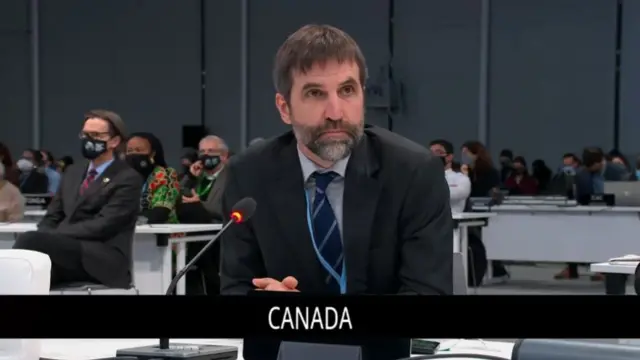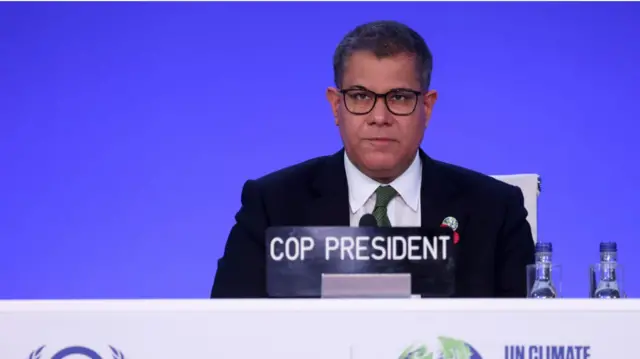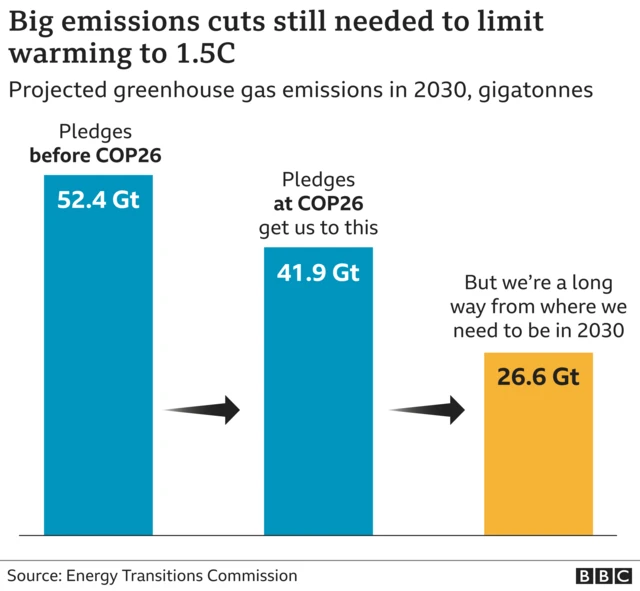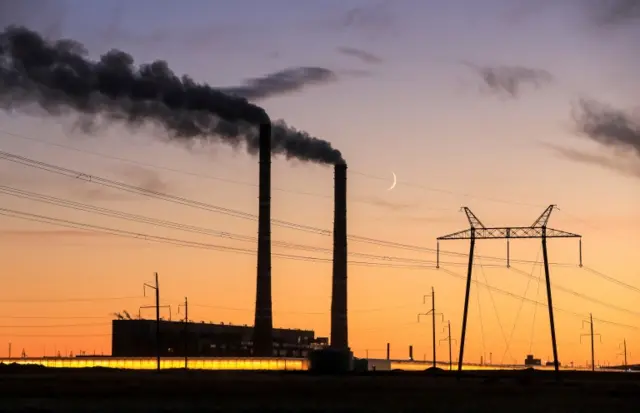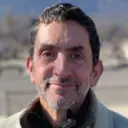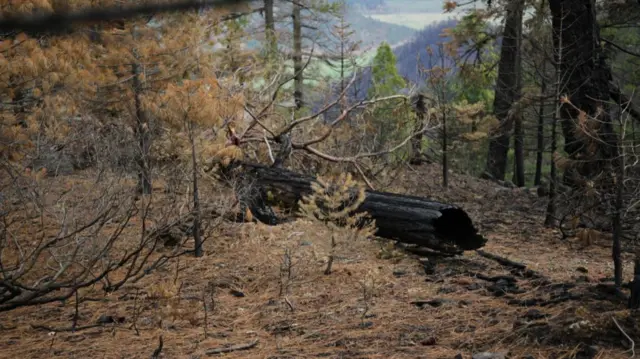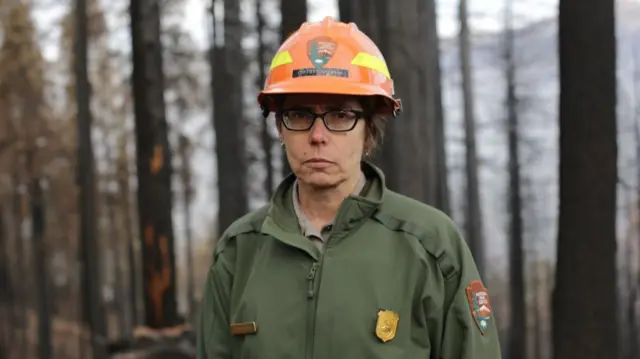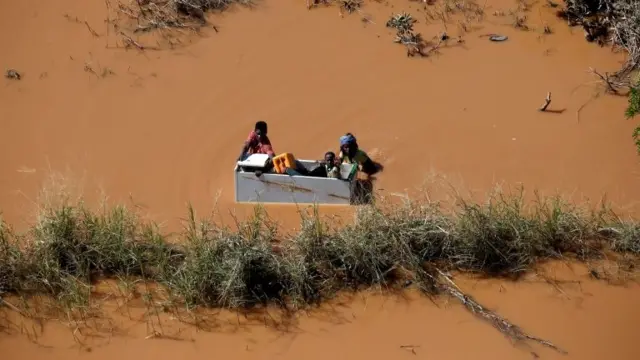'We are literally sinking' - desperate plea from Tuvalupublished at 16:40 GMT 12 November 2021
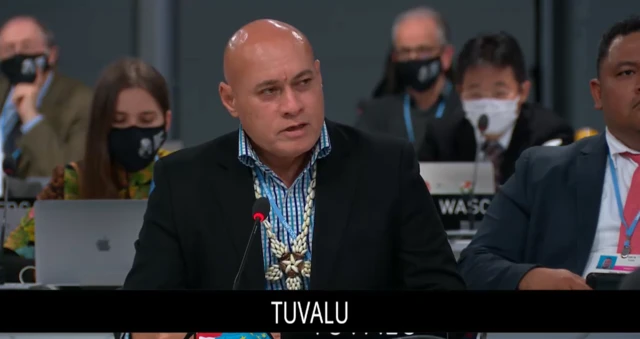 Image source, COP26
Image source, COP26There was a rapturous reception in the conference room earlier after an emotive plea from Tuvalu's representative, who said his nation was disappearing as a result of climate change.
Climate minister Seve Paeniu said his government had been optimistic after hearing the “passion, commitment and pledges” made by world leaders in the first two days of COP26.
But that optimism, he said, had sadly not translated into concrete commitments in the negotiations or the draft agreement.
Tuvalu, he told delegates, was “fast disappearing” and “literally sinking”.
“This is not fiction, not something projected to happen in the future," he said.
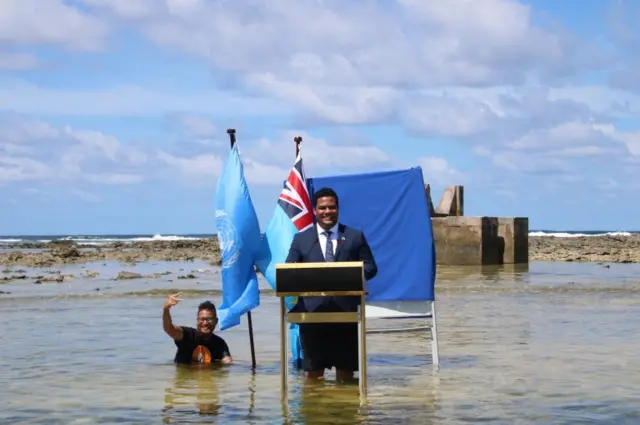 Image source, Reuters
Image source, ReutersTuvalu foreign minister Simon Kofe delivered a speech to the COP26 conference earlier this week standing in the sea
He called for stronger language on cutting emissions, greater ambition and a doubling of climate finance to help poorer countries adapt.
“It is a matter of life and survival for many of us, and we implore that Glasgow must be the defining moment. We must not fail.”
Home to nearly 12,000 people across three islands and six reef atolls, Tuvalu is particularly vulnerable to rising sea levels - as its highest point lies just a few metres above the ocean.
